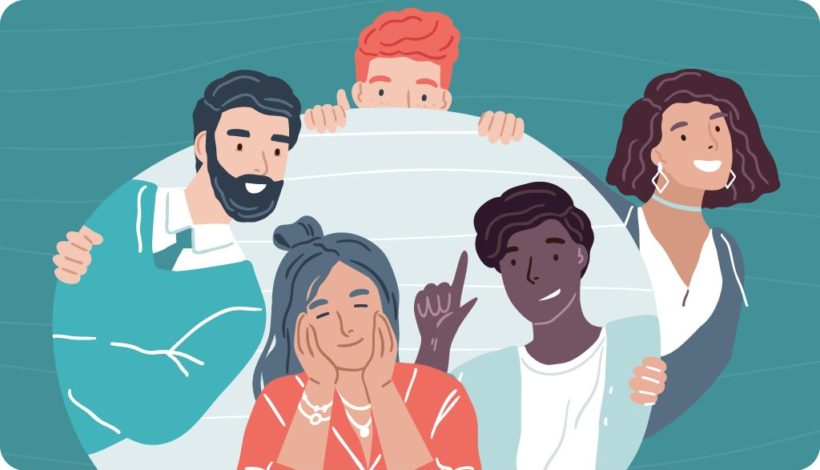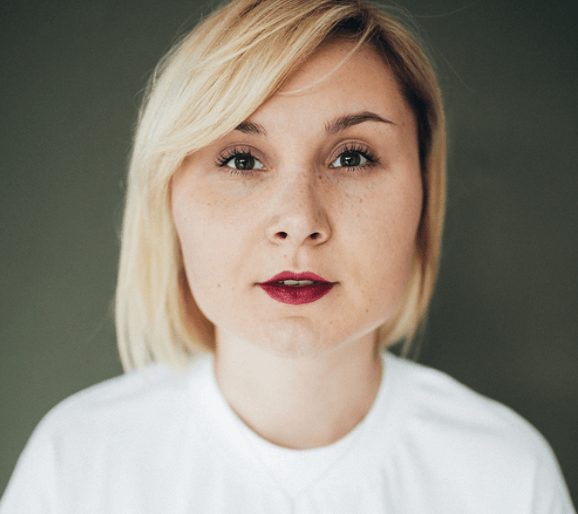Preply compares legislative equality for the LGBTQ+ community around the world

- The Netherlands and Norway are pioneers of equality
- France is the leader in the decriminalisation of homosexuality
- Intensive discussions about trans rights in Germany
- Marriage for all is steadily becoming more widespread around the world since 2001
- 23 States allow Adoption for All
- The hard battle of the LGBTQ+ community against conservative values goes on
- Definitions, methodology and sources
- A final note
It is a great pleasure to observe how more and more people are free to determine their own identity, leaving behind traditional expectations of gender and roles, finally able to be entirely themselves. The LGBTQ+ movement has never been as prominent as it is today. The community is strong, loud and proud. We celebrate the Pride Month while neighborhoods like Berlin-Schöneberg, London-Soho, Le Marais in Paris and Christopher Street in New York’s Greenwich Village are shaping the urban landscape of the world’s most influential cities.
Embracing diversity and tolerance has been a cornerstone of Preply and its international community since day one. We stand behind our queer teachers, students, and co-workers.
With the LGBTQ+ Rights Index, we would like to take a look at the history of how this community has fought for legal equality across the world. For this purpose, we have selected 50 countries and evaluated them according to their status in terms of legal equality vis-à-vis the heterosexual, cisgender population. The following criteria were evaluated for this purpose: Social acceptance, criminalisation of homosexual acts, Marriage for All, adoption for all, protection against discrimination, protection against discrimination in the workplace, and the right to change the gender record in official documents.
The Netherlands and Norway are pioneers of equality
In the Netherlands and Norway, members of the LGBTQ+ community enjoy all examined rights and protective mechanisms. That makes these countries world leaders in promoting equality for the LGBTQ+ community. For the most part these groups lack any legal protection in Afghanistan, Qatar, and the United Arab Emirates, as well some other countries. Homosexual acts are a criminal offense there. The Emirate of Dubai, a popular tourist destination, punishes consensual love between men with up to ten years of imprisonment.

Learn a language with personalised 1-on-1 classes with our expert tutors from all over the world
France is the leader in the decriminalisation of homosexuality
Since 1791, homosexuality is no longer a criminal offense in France, making this country a pioneer of the movement. It was followed by Turkey in 1858 and Japan in 1881, both of which are countries where the public expression of homosexuality is quite challenging and is considered taboo these days. The most recent decriminalisation of homosexuality took place in India in 2018.
Intensive discussions about trans rights in Germany
Germany is ranked in 10th place: it is only quite recent that LGBTQ+ persons have been granted substantial statutory equality, an opportunity to enjoy protection from discrimination, as well as the right to have their gender record altered. The so-called Transsexual Act of 1980, in particular, has drawn vocal criticism from the community. At the present time, there are already debates concerning a reform of this act.

Learn a language online with our free learning materials.
Marriage for all is steadily becoming more widespread around the world since 2001
In 2001, the Netherlands became the first country to allow same-sex couples to marry. South Africa followed two years later. In Germany, same-sex couples only received the same rights as heterosexual couples in 2017. Austria adopted Marriage for All in 2019. Croatia, Greece, Italy, Czech Republic and Estonia allow such a marriage, but only as a registered civil partnership, and not as a formalized union.
23 States allow Adoption for All
In Canada, non-heterosexual couples have been equal to heterosexual couples in terms of adopting children since 1996. As of today, 23 of the 50 surveyed countries have adopted equality in adoption. In Taiwan and Estonia, people are only allowed to adopt biological children of the other person in their partnership. In Greece, the Philippines, Latvia, Bosnia and Herzegovina, Venezuela, the Vatican, Turkey and Russia, non-biological children may only be adopted by one of the partners in a partnership, but not by both of the partners.
Protection against discrimination is the fundamental pillar on the path to equality
In Norway, LGBTQ+ people have been able to defend themselves legally against discrimination since 1981. In Germany, the General Equal Treatment Act was introduced in 2006. It also includes protection against discrimination in the workplace. LGBTQ+ persons lack any legal protection against discrimination in all public areas in South Korea, Japan, Turkey, Russia, Sri Lanka, China, Singapore, Iran, the United Arab Emirates, Qatar, and Afghanistan, among other countries.
The hard battle of the LGBTQ+ community against conservative values goes on
The community has been fighting hard to achieve the level of self-determination and acceptance that it has today. Many aspects, such as the right to Marriage for All, have not been in effect for as long as it seems. For example, marriage equality only became a reality in Germany in 2017 and in Austria as late as 2019. Furthermore, as the current situation in Hungary shows, the LGBTQ+ community must continuously defend its rights against conservative voices and values. Besides, regrettably, we also must not forget that homosexuality is prohibited by law in certain countries of the world and, in the worst cases, is punishable by death.
A unique feature of our comparison is that it took into account not only whether this community has legal equality, but also at what point in time such equality officially took effect and whether it applies to all LGBTQ+ groups. The longer this has been the case and the more comprehensive the equality and protection mechanisms, the higher the state's rating.
Definitions, methodology and sources
The document with the list of all sources used can be found here.
Social acceptance: An indicative relative metric that describes public acceptance of LGBTQ+ people and their rights. This benchmark, known as the Global Acceptance Index, was adapted from the UCLA School of Law report “Social Acceptance of LGBTI People in 175 Countries and Locations, 1981 to 2020” (page 33). The higher the benchmark, the better the rating.
Decriminalisation of homosexual activity: The legalisation of homosexuality is often the first milestone in a nation's queer history. In this case, liberalisation means decriminalisation of homosexuality and homosexual partnerships. The completed decriminalization is evaluated positively in this comparison. The earlier it took place, the higher the rating.
Marriage for All: In many circles, heteronormative marriage is and has been regarded as a form of cohabitation that is particularly worthy of protection. In many cases, marriage also provides legal benefits. The concept of Marriage for all entails the right to marry for and between all persons regardless of their gender, thereby contributing to equality. Legislative equality of marriage was evaluated positively. The earlier it took place, the higher the rating.
Adoption for all: In many cases, the adoption of children depends on marriage or a partnership between a man and a woman. The concept is based primarily on the idea that a child needs both a mother (cisgender) and a father (cisgender) to thrive. The right to Adoption for All separates adoption from the gender component and makes adoption possible for all genders and couples. Legislative equality in adoption was evaluated positively. The earlier it took place, the higher the rating. Allowing adoption with some restrictions, such as allowing adoption only for individuals in a relationship, or allowing adoption only of biological children of the other person in the partnership was rated positively, but in no case higher than full legal equality without any restrictions.
Protection against discrimination: Laws against discrimination are intended to ensure equal opportunities and provide a legal basis for freedom from discrimination on the grounds of sexual orientation or gender. In the best case, anti-discrimination laws work comprehensively in all areas of society and in all public places. The implementation of laws protecting against discrimination on the grounds of gender or sexual orientation was evaluated positively. The earlier this legal framework was put in place, the more favorable the evaluation was. Incomplete protection was rated more favorably than unprotected status, but still not as highly as comprehensive non-discrimination legislation.
Protection against discrimination in the workplace: Particular protection against discrimination is required in the workplace and when looking for a job. There was a positive evaluation regarding the implementation of laws protecting against discrimination in the workplace and in job search on the grounds of gender or sexual orientation. The earlier this legal framework was put in place, the more favorable the evaluation was. Incomplete protection was rated more favorably than unprotected status, but still not as favorably as comprehensive non-discrimination measures.
Right to change the gender record: Those who were assigned the wrong gender at birth, as in the case of trans people, or who do not identify as either female or male, are in some cases entitled to have their gender record changed on their birth certificate, passport, civil status certificate or any other official document. As such, the right to change one's gender record represents the public recognition of trans identities and of a gender spectrum beyond binary standards. Nations that allow this right have been evaluated positively. The earlier this legal framework was put in place, the more favorable the evaluation was. Having incomplete or conditional rights was evaluated more favorably than having no rights, but not as positively as providing comprehensible protection. For example, among the most widespread restrictions is that trans individuals may not change their gender registration until they have undergone gender reassignment surgery.
A final note
We understand that the above criteria are not exhaustive and represent only a few aspects in the struggle for full equality for queer people. Other criteria to complement the assessment would have been, for example, the ban on conversion therapy, the ban on blood donation, the censorship of LGBTQ+ themes in the public and educational spheres. Unfortunately, we had to decide against including these and other topics due to the fragmentary availability of data. The same is essentially also the case for the selection of the countries studied. For this reason, we have limited ourselves to criteria and countries that provide a notably reliable set of data from credible sources.
Next article

Love & language barriers: UK attitudes towards dating outside of your first language
A survey of 2,000 Brits identifies how love and language barriers mix (or don’t mix), as the results uncover most likely attitudes, challenges and highlights.
Previous article

Learn your pet’s language
So you want to talk to your dog, eh? Learn how to understand your dog’s every thought with our brand new course.







